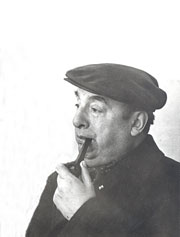taboo
Written on 1:06 PM by isko b. doo
How do you classify some practices as taboo? By what power does society proscribe something as unacceptable, as vile, as forbidden as to exclude it from mores and the fineries of civilization?
I saw on National Geographic the origins of voodooism and it demystified all my preconceived and ambiguous notions about the practice. All I knew about voodoo before were from the movies: the dolls, reminiscent of our own mangkukulam, the rituals of blood and sacrifices, and zombies. Who could forget about the zombies? I remember the film Night of the Living Dead in the old betamax and how they couldn’t be killed unless you sever their heads off from their bodies, or blow their brains out, depending on how you like your gore. That night I couldn’t sleep and it didn’t help that we had a weirdo for a house help who relished in regaling (read: scaring) us with stories from the radio programs she listened to.
Apparently, voodoo is considered as religion in
The original meaning of the word from the Farsi (?) language was spirit. Meaning: to invoke the spirits. The invoking part is what makes the religion so controversial. The rituals include sacrificing a kid (not a kid kid but a goat young) or cutting themselves to draw blood, which becomes the sacrifice itself. The priest sways to the rhythm of the drums (maybe the reason why hip-hop music is dictated by the throbbing of the drum) before he’s possessed by the spirit.
I was watching the whole episode when I drew some parallelism with Catholicism, which is supposedly a mainstream religion and was partly responsible for creating the myths about voodooism. The use blood in voodoo rituals is not unique. During communion, priests drink the wine which represents the blood of Christ. All throughout history, we have ordinary people suffering from stigmata and some of them were canonized to sainthood.
Possession, too, is not limited to voodooism. God manifested himself through Immaculate Conception, which is quite simply a form of possession. In fact, Christianity as a religion was itself considered a taboo when Mithraism was the dominant religion years after Christ’s death. Christians were routinely hanged, fed to the lions, or flagellated.
Speaking of flagellation which is a prevailing practice in voodooism, during the Semana Santa, Catholic devotees also practice self-flagellation as a form of penitence. Some of these devotees even nailed themselves to the cross. The fanatics among the Catholic hierarchy like Opus Dei, for example, also practice self-flagellation.
The thing that struck me about voodooism is the violence. There’s a term that describes this: the passion of the real. The concept is that for the experience to be authentic, there has to be some violent or shocking encounter. This is especially relevant to our times when we are rendered more and more like automatons or zombies by the technologies that surround us. When conversations are diluted by the vicarious social interaction between a man and a woman, typing hurried words in their yahoo messengers.
Voodoo is an “in-your-face” religion, devoid of the trappings of social political correctness (which is the greatest thing that ever happened to bigots and racists, but that’s another story). When you break down all existing constructs, what do you have left? Ironically, it doesn’t follow what existentialist and post-modernist thinkers are proposing: that meaning and experience can only be created by the individual and so is not objective. What remains, in fact, is the common need to connect to something that is higher than ourselves. And that promise, that potentiality is universal to all religions. That’s what makes Christianity and Voodooism ultimately the same.
God, my head hurts.




